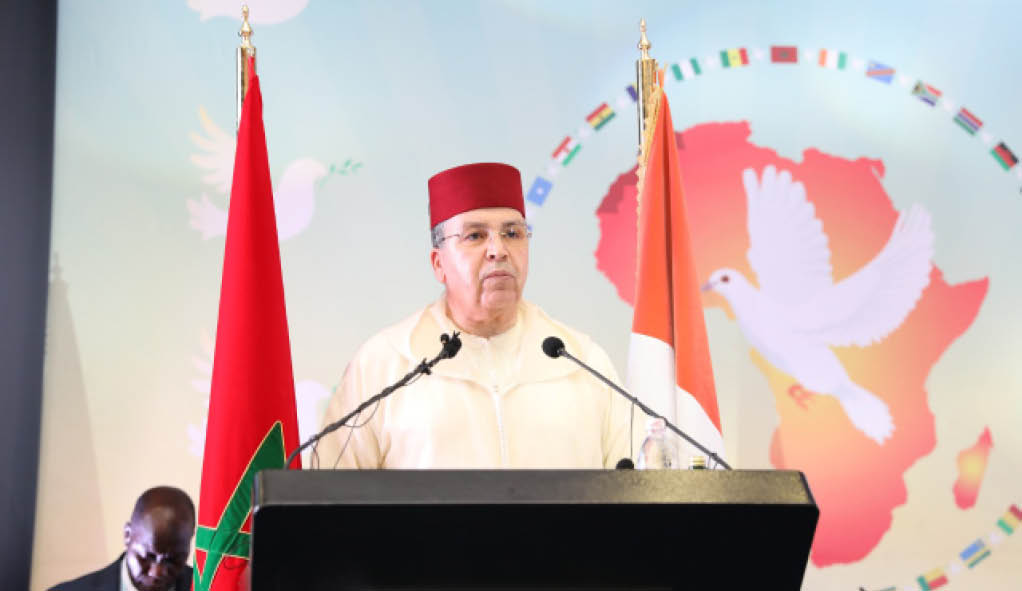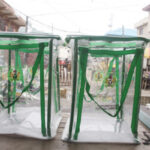The outcome of the Abidjan Interfaith Dialogue has likely matched the religious and social aspirations of Muslims, Christians and other faiths for the realisation of peace through tolerance and dialogue in Cote d’Ivoire and Africa.
At the event, which hosted over 600 interfaith researchers and experts from at least 34 countries, brainstormed on the magic word of “dialogue” under the theme ‘The Eternal Message of Religions’.
The three-day symposium was jointly organized by the King Mohammed Foundation of African Oulema and the Higher Council for Imams, Mosques and Islamic Affairs.
Russia-Ukraine war: Displaced Nigerian students offered study opportunity in Romanian varsities
JUST IN: Security operatives take over APC nat’l secretariat
Putting a final touch to the symposium, a first of its kind, the experts realised that all the participating religions need each other for a peaceful Cote d’Ivoire and the African continent.
Unanimously, they all called for an open path for exchange between Muslims, Christians and Jews in Côte d’Ivoire and in Africa to foster the spirit of peace, tolerance and, most importantly, defeat terrorism.
They described radicalisation, extremism and fundamentalism as great problems faced by African societies, thus the need for the multidimensional approach to eradicate them.
Secretary-General of the Mohammed VI Foundation of African Oulema, Dr. Si Mohamed Rifki, called on believers of various faiths in Africa and the world to defeat extremist viewpoints.

He stressed the need for the faith groups to reflect on the human weakness taking root in African societies by consolidating the divine elements in their lives – in order to unravel the reasons for the endless suffering on the continent, which is the surest way to find a lasting solution.
He said “Africa is a relatively young continent, full of promise and hope, but plagued by trauma, suffering and conflict.
“There is the need to carry the word of God and give substance to the merciful virtues, which guarantee happiness to humanity,” he added.
Corroborating that, the President, Catholic Bishops Conference of Cote d’Ivoire Metropolitan Archbishops of Korhogo, Mgr Ignace Dogbo Bessi, described the dialogue as an opportunity for all the faithfuls to live peacefully together as one.
He said all prophets of God were given the message of peace to their disciples. “So, this symposium is a great message not only to Muslims or Christians but to Africans in general.”
He also appreciated the foundation for inviting Christian clerics to the table of the dialogue for peaceful coexistence in African societies.
On his part, the representative of the Ivorian President, Abdulrahman Sissay, commended the King Mohammed Foundation of African Oulema’s efforts in promoting moderate and tolerant Islam – asserting that it’s a wake-up call for the Ivorian government against violent extremism in the country. He emphasized that the presence of the country’s minister for National Reconciliation indicated the commitment of his government towards consolidating the foundation of mutual co-existence among different faith groups.
The president, Cote d’Ivoire branch of the Foundation, Sheikh Mustapha Sonta, said the foundation is seeking to strengthen means of enhancing peaceful co-existence with other religions even as it expresses its worry about the global state of affairs, which mainly affects the image of Islam and Muslims – while commending the “We are all Believers” declaration of His Majesty King Mohammed VI of Morocco.
The forum’s approach to peace, tolerance, and dialogue
Within the three-day brainstorming, the participants, who spoke in turns, focused on five thematic areas that relate to the culture of peace and other non-violence approaches.
These thematic areas, which were deliberated on by different interfaith experts, including women representatives, have reflected on the challenges and disciplines of all the religions across Africa.
The roles of family and the school was the first theme deliberated on. Here, the experts considered that parents have a crucial role to play in championing the interfaith dialogue.
According to the experts, parents are the first agents of early childhood education – where the “building blocks’’ of behaviour are moulded and nurtured – to be built upon by the children’s schools.
Another approach to the dialogue also looked at the role of the Ivorian and African civil society groups. As the second theme – they consider the huge socio-political impacts of CSOs, as policy actors and influencers on the continent.
Thirdly, they deliberated on the theme of training and sensitization of religious leaders, which, according to them, is perhaps the most crucial short-term measure – considering the huge recognition faith leaders are accorded in Africa.
“Armed with the right, moderate, human-centred orientation, religious leaders will play an invaluable role in nurturing interfaith peace and tolerance,” the experts said.
The fourth theme deliberated upon was the joint roles of religion, communication and acts of preaching. Religion, by its compelling power in influencing behaviour, is an effective tool in the hands of its agents.
According to them, communication – particularly the traditional and modern forms of communication through social media, holds strong potential in influencing behaviour, more especially for those who rely on this means of information to make sense of the day-to-day issues.
“Acts of preaching itself hold one of the most effective influences on individuals and society at large” they observed.
Lastly, is the fifth theme, which was the role of public authorities and religious stakeholders in facing up to the issues of radicalization and violent extremism.
“Indeed, government – as the formulator and driver of public policy, has a crucial role to play in providing the needed impetus, tools and incentives to undertake effective public education – and this could have maximum impacts in collaboration with various faith-based stakeholders across the continent.
A roadmap to the interfaith harmony
At the end of the symposium, “The Abidjan Declaration”, as the document was named, served as a “roadmap” for various African religious heads, authorities governing religious entities, and policymakers on religious affairs in their efforts at achieving inter-religious peace and harmony on the continent.
The declaration also seeks to remind religious leaders that “the universal values advocated by religions’’ – such as inter-religious dialogue, solidarity, fraternity, tolerance, openness to others and respect for human dignity” – are the basis for dialogue between civilizations.
The signatories to the declaration undertake to ensure that the culture of dialogue among believers in all regions shall be established and sustained in keeping with the laws of member countries – such as freedom of worship and of conscience.
It also condemns all forms of hate speech and acts of violence being perpetrated by a few individuals and groups – which endanger social stability – often leading to loss of lives and properties.
The document also urges African religious leaders and policymakers to unite and be steadfast against any threats of religious bigotry that may threaten social cohesion and stability on the continent, while advocating for the need to accord every individual equality before the law – regardless of his or her religious affiliation.
The document also calls on religious authorities to pool their efforts to help find solutions to the acute challenges in the health, environmental and economic spheres.
The declaration also touches on climate change by urging the need for a joint effort at protecting biodiversity for the greater good of present and future generations – based on clear, universally accepted guiding principles.
The King Mohammed Foundation of African Oulema is a grouping of African Muslim scholars from 34 countries established in 2015 by His Majesty King Mohammed VI of Morocco with the main aim of uniting and consolidating the efforts of African Muslim scholars to promote moderate Islamic principles of tolerance, peace and inter-religious dialogue.

 Join Daily Trust WhatsApp Community For Quick Access To News and Happenings Around You.
Join Daily Trust WhatsApp Community For Quick Access To News and Happenings Around You.


